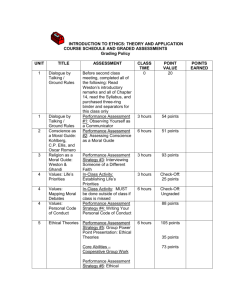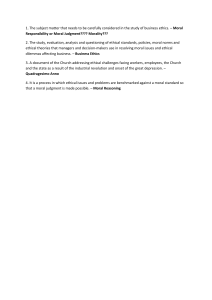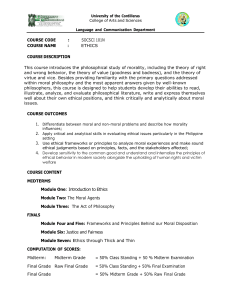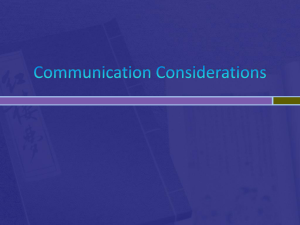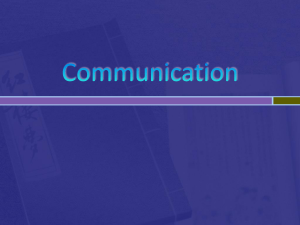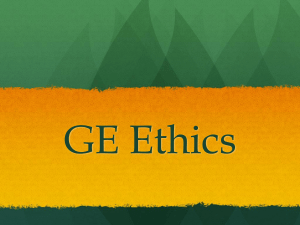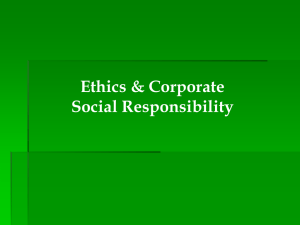ethics
advertisement
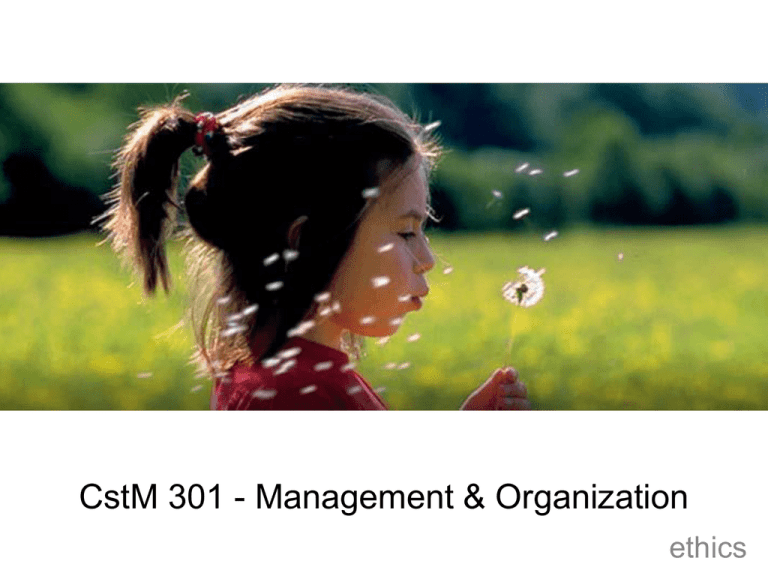
CstM 301 - Management & Organization ethics ethical behavior… eth·ics [eth-iks] -plural noun 1. the moral code of principles that sets standards of good or bad, or right or wrong, in one’s conduct. eth·i·cal be·hav·ior [eth-i-kuhl bih-heyv-yer] - adjective 1. behavior that is accepted as “good” and “right” as opposed to “bad” or “wrong” in the context of the governing moral code. impact of laws & values… legal or illegal values terminal values instrumental values alternative views… utilitarian individualism moral rights justice impact of cultural issues… cultural relativism universalism ethical imperialism in the workplace… discrimination sexual harassment conflict of interest product safety resource usage ethical decision making… person situation organization environment moral development ethical intensity ethics culture ethical decision industry norms personal factors… pre-conventional self-centered behavior stage 1 - avoid harm or punishment stage 2 - make deals for personal gain conventional social-centered behavior stage 3 - follow rules to help society run smoothly stage 4 - act consistently w/ peers, others post-conventional principle-centered behavior stage 5 - live up to societal agreement concerning individual rights stage 6 - act according to internal principles rationalizations… legal best interest secret protected ethics maintenance… ethics training code of conduct moral management moral, amoral & immoral whistleblower protection

